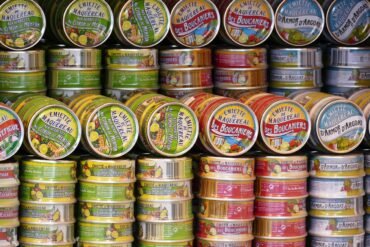The Importance of Hydration for Optimal Health

Water is not just a simple thirst quencher; it plays a vital role in keeping our bodies functioning properly and promoting overall health. Our bodies heavily rely on water to maintain various systems and processes. With approximately 60% of our body weight being water, it is no surprise that staying hydrated is crucial for our well-being.
nbsp;
How Water Functions in the Body
Water has numerous functions within the body, contributing to its overall balance and efficiency. Let’s explore some of the key roles water plays:
1. Regulating Body Temperature
Water helps regulate body temperature through processes like sweating and evaporation. As we perspire, water on the skin’s surface evaporates, cooling down the body and maintaining a stable internal temperature.
2. Moistening Tissues in the Eyes, Nose, and Mouth
Water is essential for keeping our eyes, nose, and mouth moist. It prevents dryness, irritation, and discomfort, ensuring optimal functioning of these sensory organs.
3. Protecting Organs and Tissues
Water acts as a protective cushion for vital organs and tissues. It provides a layer of fluid that helps absorb shock and minimizes the risk of injury.
4. Carrying Nutrients and Oxygen to Cells
Water serves as a medium for transporting essential nutrients and oxygen to cells throughout the body. This ensures that our cells receive the necessary resources for proper functioning and optimal health.
5. Lubricating Joints
Proper joint lubrication is crucial for smooth movement and flexibility. Water acts as a lubricant within joints, reducing friction and preventing discomfort or pain during physical activity.
6. Assisting in Waste Removal
Water plays a vital role in eliminating waste products from our bodies. It helps flush out toxins and waste through urine, sweat, and bowel movements, reducing the burden on the kidneys and liver.
7. Dissolving Minerals and Nutrients
Water is responsible for dissolving minerals and nutrients, making them accessible to the body for absorption and utilization. This ensures that our cells receive the necessary building blocks for optimal functioning.
Determining Your Hydration Needs
Every day, our bodies lose water through various processes such as breathing, sweating, and eliminating waste. It is essential to replenish these lost fluids to maintain proper hydration. The required amount of water varies depending on factors such as age, gender, activity level, and environmental conditions.
1. Recommended Daily Fluid Intake
In general, men should aim to consume at least 2.6 liters (10 cups) of fluids per day, while women should aim for a minimum of 2 liters (8 cups). It’s important to note that these are general guidelines, and individual fluid needs may vary.
2. Factors Affecting Fluid Needs
Several factors can influence your fluid requirements. These include:
- Exercise: Engaging in physical activity increases fluid needs to compensate for sweat loss.
- Hot Weather: High temperatures and increased sweating necessitate additional fluid intake to prevent dehydration.
- High Altitude: At higher altitudes, the air is drier, and our bodies lose more fluids through respiration, requiring increased hydration.
- High-Fiber Diet: A diet rich in fiber can increase fluid needs as fiber absorbs water in the digestive system.
- Caffeine and Alcohol Intake: Both caffeine and alcohol act as diuretics, increasing urine production and potentially depleting body fluids. Increased intake of these substances may require additional hydration.
3. Monitoring Hydration
Monitoring your hydration levels is essential to ensure you are adequately hydrated. One practical way to assess hydration is by observing the color of your urine. Straw- or lemonade-colored urine generally indicates appropriate hydration, while dark-colored urine may be a sign of dehydration.
Hydration Strategies
To maintain proper hydration, it’s important to adopt healthy water habits. By implementing the following strategies, you can ensure that you stay adequately hydrated throughout the day:
1. Start Your Day with Water
Kickstart your morning by drinking a glass of water as soon as you wake up, even before indulging in your morning coffee. This early hydration sets a positive tone for the rest of the day.
2. Carry a Water Bottle
Make it a habit to carry a reusable water bottle wherever you go. Having water readily available encourages regular sips and ensures you stay hydrated throughout the day.
3. Set Hydration Goals
Set goals for yourself to drink a certain amount of water by specific times of the day. For example, aim to finish a certain number of glasses by noon and then set a goal for the afternoon. By breaking down your hydration goals, you make them more achievable and easier to track.
4. Limit Sugary Beverages
To avoid unnecessary empty calories and promote overall health, cut out sugary beverages from your daily routine. Opt for water as your primary source of hydration, and if you crave carbonation, consider alternatives like club soda, seltzer, or sparkling water with a splash of fruit juice.
5. Explore Flavorful Options
If you prefer flavored water, there are various ways to add a hint of taste without compromising your hydration. Try adding a slice of lemon or lime to your water or experiment with fruit-infused water, like strawberry basil-infused water.
Strawberry Basil-Infused Water Recipe
Ingredients:
- 1 pint sliced strawberries
- 10 fresh basil leaves, torn
- 1 sliced lemon
- 2 quarts water
Instructions:
- Combine the sliced strawberries, torn basil leaves, and sliced lemon in a 64-ounce pitcher.
- Pour water over the top of the ingredients.
- Chill the infused water in the refrigerator for at least three hours to allow the flavors to meld.
- Enjoy this refreshing, flavored water. It can be stored in the refrigerator for up to two days.
Additional Tips for Staying Hydrated
- Incorporate hydrating foods: Fruits and vegetables are not only nutritious but also contain a significant amount of water. Including hydrating foods like watermelon, cucumbers, oranges, and celery in your diet can contribute to your overall fluid intake.
- Use hydration apps: There are various smartphone apps available that can help you track your water intake and send reminders to drink throughout the day. Explore these apps to find one that suits your needs.
- Listen to your body: Pay attention to your body’s hydration cues. If you feel thirsty, drink water. Thirst is a reliable indicator that your body needs hydration.
- Seek professional advice: If you have specific health concerns or questions about your hydration needs, it’s always best to consult with a healthcare professional who can provide personalized guidance.
Remember, staying hydrated is not only essential for physical well-being but also contributes to optimal overall health. By prioritizing proper hydration, you can support your body’s various functions and maintain a state of well-being. Drink up and stay hydrated for a healthier you!
Please note that the information provided in this article is for educational purposes only and should not replace professional medical advice. If you have any concerns or questions about your hydration needs, consult with a healthcare professional.


























